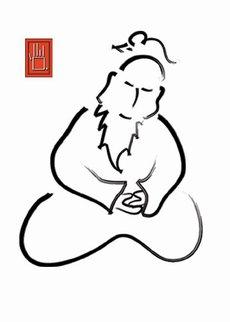Finance 401
Talked to Packrat earlier today. After all these years, he's finally learning how to handle money. His difficulties, of course, began when he was but a lad. He never had a set allowance, so there was never an opportunity to learn the discipline imposed by having too much month left over at the end of one's money. Mom and Dad were always around to bail him out. All these years later, he's had difficulty saying "no" to himself and prioritizing his expenses.
After some really tight times, he's been managing his money to the point where he's not only meeting his obligations, but living almost comfortably. His Dad sent him some money to buy another used car with, but that money is sitting in the bank. Years ago, that money would have burned a hole in his pocket faster than you could say "Cash or charge?". It's a real delight to see him maturing this way.
Of course, our own financial maturing took a slightly different path. Not having had a set allowance, we also didn't have quite that discipline. The big difference was that Packrat's family had the money to indulge him now and then. Ours didn't. We learned very early in life to differentiate between needs and wants. And, while living in Germany years ago, we had a set budget, and when that money ran out, that was it. It only took about three months to get our act together.
Living within one's means is hardly the most difficult thing. We've learned four elements that greatly increase one's ability to do so. The first -- for any Christian, Jew, or Moslem -- is to pay an honest tithe. As corny and old-fashioned as that might seem in our "modern" age, the Lord's promise to "open the windows of Heaven and pour out a blessing" has never been revoked or rescinded. We know from personal experience that it works. So long as we've made the effort to pay an honest tithe, we've never done without the things we've truly needed. Not only that, but we've experienced a certain prosperity that others find difficult to grasp.
The other elements are more mundane, but no less effective. The second of these is to keep one's money organized. We avoid the use of credit cards, which leads all too easily to overspending, and rely instead on cash wherever possible. Simply keeping the bills in order by denomination -- optionally with a money clip -- reinforces a certain monetary discipline. Take care of your money and your money will take care of you.
The third thing is to never spend coins. It's amazing how fast they add up. At the end of the day, they go into either a jar or those little counting tubes. Every so often, they get wrapped and deposited to our savings (not checking) account. (For a while, they were being deposited into checking, to build up a certain overdraft protection.)
The last thing is to keep an itemized list of expenditures. A simple spreadsheet -- paper or electronic -- is sufficient. We did this while in Germany, and it was remarkable how quickly our expenditures decreased. Perhaps it was only due to the unconscious realization that, if we bought it, we had to record it. However it worked, it worked.
Needless to say, the ability to say "no" to oneself on occasion is a larger factor than most people will admit. Understanding the difference between wants and true needs is key. Another way to look at it is in terms of critical needs, comforts, and luxuries. Food is admittedly pretty essential to our existence. But do we really need filet mignon on a hamburger budget? A good TV is a creature comfort, but must it be a 32" plasma flat-screen? Know when to say "no".
Class dismissed.



